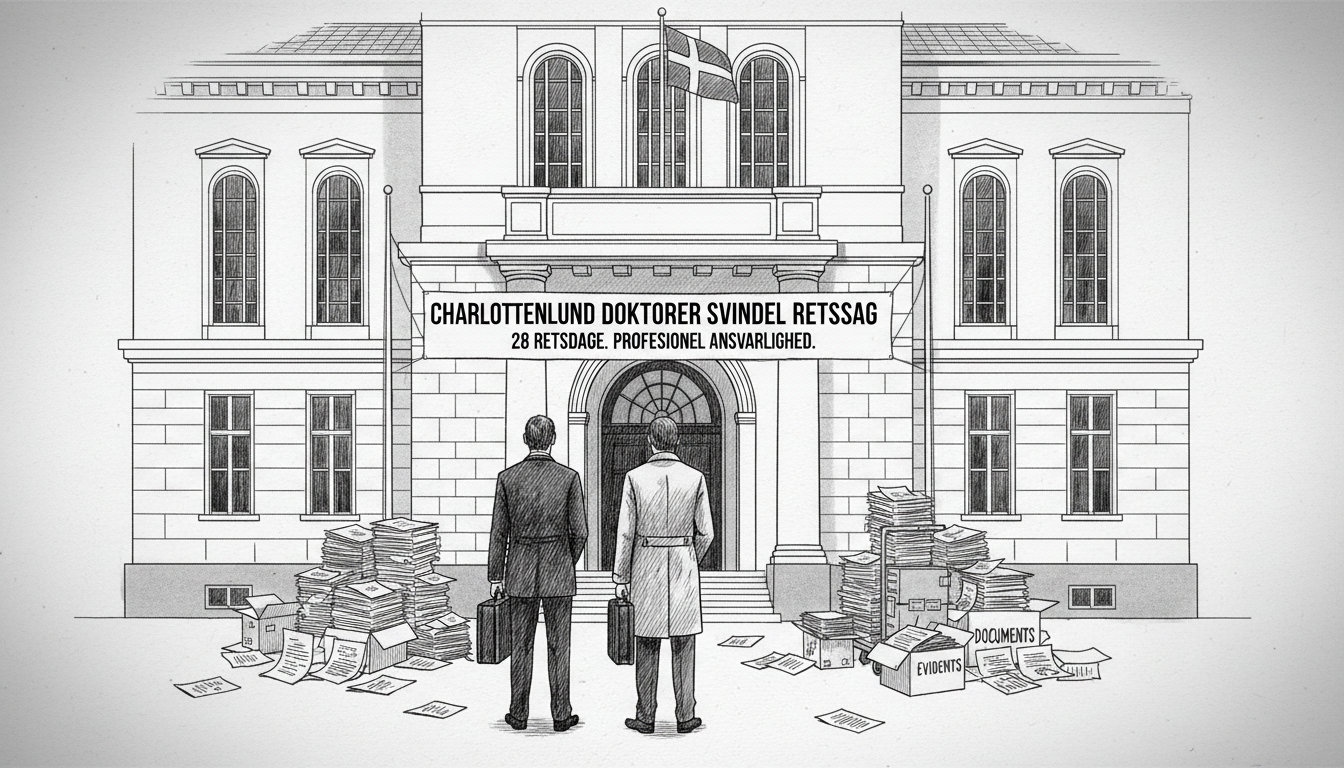The courtroom in Lyngby filled completely as three physicians from Charlottenlund Medical Center faced fraud charges. Their defense counsel submitted over 3,000 new documents just before Friday's session began. This late submission visibly frustrated both judges and prosecutors handling the case.
Every spectator seat was occupied as the accused doctors sat flanked by their respective attorneys. The case will unfold across 28 court days in one of Denmark's most watched fraud trials. Proceedings began exactly five minutes before judges and lay judges entered the courtroom.
This case touches deeper questions about Denmark social policy and professional accountability. Medical professionals hold trusted positions within the Danish welfare system. Their alleged misconduct raises concerns about oversight mechanisms.
Danish society news often highlights integration challenges, but this case shows different tensions. Wealthy suburbs like Charlottenlund represent established communities facing their own forms of social scrutiny. The trial's outcome could influence public trust in medical institutions across Copenhagen integration zones.
Legal experts note this scale of documentation suggests a complex financial case. Submitting thousands of pages just before trial indicates either thorough preparation or deliberate delay tactics. The court must now process this volume while maintaining trial schedule.
Denmark immigration policy discussions often dominate integration conversations. Yet this case reminds us that integration encompasses all aspects of societal participation. Professional ethics and financial transparency matter equally in Danish society news coverage.
The Danish welfare system relies heavily on public trust in institutions like healthcare. Cases like this potentially undermine that confidence. Municipal authorities monitor such proceedings closely for broader implications.
What consequences might this trial have for medical regulation? Could it lead to stricter financial oversight of healthcare providers? These questions matter for Denmark social policy development.
The coming weeks will reveal whether these allegations represent isolated incidents or systemic issues. Either way, the case already demonstrates how legal proceedings can illuminate broader social dynamics within Danish communities.

